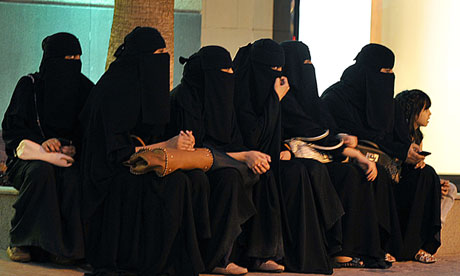By Justin Dorman
Impunity Watch Reporter, Middle East
RIYADH, Saudi Arabia – Saudi Arabia, a ultraconservative Islamic country historically governed by men, has for the first time granted seats on the Shura council to women. The Shura council is Saudi Arabia’s top advisory board.

The one hundred and fifty member council now seats thirty women. Furthermore, courtesy of First Amendment: Article 3 of the council’s statute, which King Abdullah introduced, women can never constitute less than twenty percent of the council. Previously, women were only permitted to be consultants to the council and only on topics such as family and women’s issues.
Members of the Shura council sit for four-year terms. Since the nature of the council is to serve in an advisory capacity, it has no legislative power. Members may review laws and question ministers.
The thirty women who were given seats on the council include human rights activists, university graduates, and two princesses. One such woman is Thuraya Obaid, a United Nations administrator who has previously served as the undersecretary general to the world body and as an executive director to the United Nations Development Programme.
Female Saudi novelist Baridya al-Bishr described the new class of councilwomen as “the cream of the crop.”
King Abdullah’s appointment of women to the council has been warmly welcomed by women’s rights activists. Well known activist Wajeha al-Hawaidar believes that, “men can finally respect women when they see them playing a male role.”
This move was one of many changes King Abdullah has made to advance women since he became king. In 2009, Norah al-Fayez was the first woman ever named to a ministerial post. Then in 2011 he granted women the right to vote and run as candidates in local elections. Most recently, two Saudi Arabian women were permitted to be the first women to partake in the Olympics.
Nevertheless, there are still many more changes female activists wish to see implemented. Women are still not allowed to marry, divorce, work, travel, or be taken care of in a hospital without the permission. Women who are permitted to travel are still electronically tracked, and automatic text messages are sent to her male guardian informing him of her whereabouts.
Ultimately, the council appointments signify great progress for women in Saudi Arabia. The change, however, does not come without limitations. Women still must be segregated from men once inside the council in a special area, and must also enter through a separate door.
For further information, please see:
Al-Akhbar – In Historic First, 30 Women Appointed to Saudi Shura Council – 11 January 2013
Guardian – Saudi King Allows Women on top Advisory Council – 11 January 2013
Middle East Online – Precedent: Saudi Women Named to Shura Council – 11 January 2013
Ya Libnan – Women Named to the Saudi Shura Council for First Time – 11 January 2013